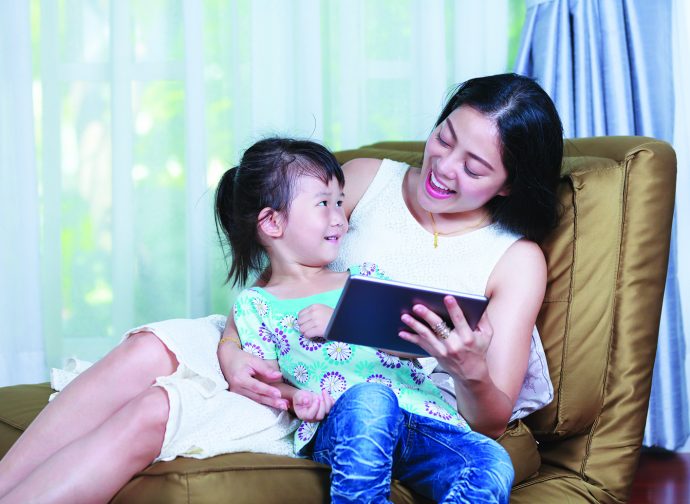In the current world where cultural diversity is ever growing and in fact becoming the norm, the number of children who are multilingual have increased. It is not surprising that in a country like Malaysia, with its rich and diverse multicultural society, children who speak two, three, or even four languages every day is not an uncommon occurrence. So, how can parents nurture, support and raise a multilingual child?
Benefits of being multilingual
Studies on the benefits of raising a multilingual child have frequently reported positive effects. Speaking more than one language regularly is associated with various cognitive benefits such as improved literacy and language skills, memory, creativity, and problem-solving skills. In addition to this, multilingualism is also associated with improved communication skills (e.g. writing, reading, comprehension, listening, and speaking). Being multilingual can also provide new travel, education, and career opportunities in the future and promotes better cultural awareness in children.
Tips to raising a multilingual child
- Start early. Learning a new language is more effective at a younger age than it is later on in life. Therefore, it is important to expose new languages at an early age.
- Promote immersion. Encourage your child to take part in activities that exposes them to different languages. For example, attending cultural events or consuming media (e.g. movies, music, TV shows, books, etc.) in a different language. However, keep in mind to limit exposure of very young children, especially those below two years, to screentime. In older children, the number of screentime hours should also be monitored and regulated.
- Make language learning fun. Incorporate language learning in different family activities. This can include games, songs, etc. It is important for parents to avoid pressuring their child to learn multiple languages, and imparting knowledge in a fun way enhances positive learning experiences.
- Create a multilingual environment at home. Although the Malaysian society is generally multilingual, it may still be useful for parents to also speak different languages at home. This creates an environment that consistently exposes your child to different languages.
Frequently asked questions
“When is the best time for children to pick up a language?”
Generally, the ideal time for a child to pick up a new language is before the age of 10. This is because the human brain is most adaptable during critical developmental windows in early life. Children initially form neural connections earlier in life, followed by pruning of these connections. Brain connections that are used more frequently are strengthened and maintained. Thus, exposure to consistent and good language learning strategies at a young age enable grammatical rules and pronunciation of new languages to be learnt earlier and easier.
“Is it better for my child to learn different languages simultaneously or separately?
Teaching children different languages can be done at the same time (simultaneous acquisition) or separately (sequential acquisition). There is no “best method”, as it depends on numerous factors such as age, language environment, cognitive development, consistency and exposure to the languages, etc. In most cases, families opt for a combination of both approaches.
“Does learning multiple languages cause language delay?”
This is a common misconception – learning a different language during childhood does not cause language delay. In the case of a bilingual child, while the individual vocabularies in each language might be less extensive than usual, the combined vocabulary (comprising both languages) is comparable to that of a child who has learned only a single language.
There are caveats to this recommendation in children who have been identified with speech delay by a medical practitioner. In these children, there may be benefit in concentrating on acquisition and mastery of one language first, although the appropriate strategy for these children should be discussed with their medical practitioner and therapists working with the child and family.
In Malaysia, being able to speak multiple languages is part of our day-to-day routine. Therefore, it is important for parents to be actively involved in helping their child learn new languages. This way, you’re not only giving your child a special gift of learning a new language, but also helping them become better at communicating with others.






